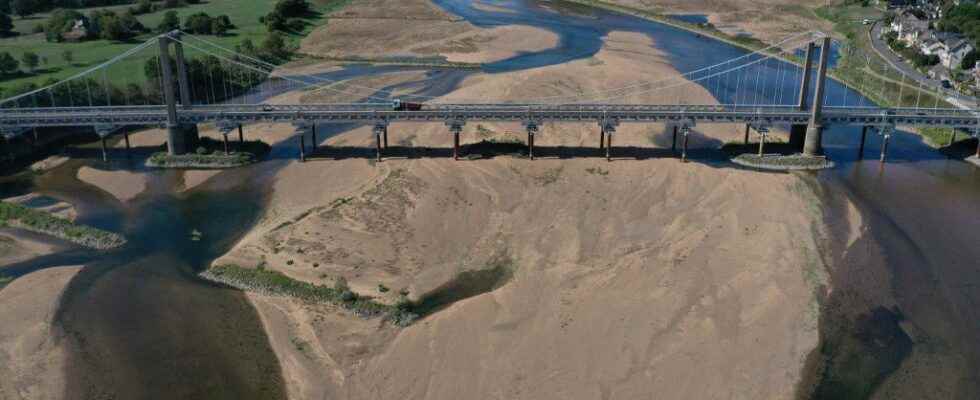“France is on alert”. It is with these words that the Minister for Ecological Transition, Christophe Béchu, announced the establishment of a drought anticipation committee this Thursday, February 23, after France experienced 32 days without rain, a record for the winter since 1959. “As of Monday, with all the basin coordinator prefects, we will look at territory by territory where we are”, he explained on France Info.
For the doctor in agroclimatology Serge Zaka, interviewed by The Express, this drought is unprecedented in several respects. “Over the last nineteen months, there have been fourteen below the reference standards. It’s a drought over time, which accumulates, and which has progressive consequences”, he explains. Some regions are particularly affected, such as Brittany, which during the drought of summer 2022 experienced invisible or zero flow for 40% of its rivers, reveals a report by the Observatory of the environment in Brittany ( EPO), published Wednesday. The Pyrénées-Orientales have been on drought alert since June 2022.
In addition to the drying up of agricultural soils, the level of groundwater is “about two months behind in terms of filling”, notes Christophe Béchu. “This situation is explained by the presence of an anticyclone which has settled over Western Europe and which is pushing back the precipitation”, analyzes Serge Zaka, for whom global warming has accentuated this phenomenon. And to add that temperatures above normal for the season, with very strong heat waves, caused “the transpiration of plants and ecosystems”, and therefore the loss of water.
Restrictive measures
In an attempt to guard against this, the Minister for Ecological Transition has announced that “soft” restriction measures will be put in place in March, like the 87 municipalities of the Var prefecture, which are currently subject to bans on washing cars, watering gardens or filling swimming pools.
“We must make the French people responsible for their water consumption and the actions to be taken”, specified Christophe Béchu. On average, between 2008 and 2019, the annual volume of water consumed was estimated at 5.4 billion cubic meters in metropolitan France, or 82 cubic meters per inhabitant, according to the Ministry of Ecological Transition. Over this period and for the months of June to August, water consumption represented “about 60% of the annual total”.
Conserve water for agriculture
“If we start to use water in winter that we don’t really need, we risk having less of it during summer droughts. We know very well that we are going to be in deficit, so we have to anticipate and save water. water in the groundwater for essential sectors such as agriculture”, emphasizes Serge Kaza. But these “common sense measures” will still not succeed, according to the expert, in catching up by this summer, contrary to what the minister said. “For that, you would need to have 200 millimeters of water throughout France, that is to say that it rains every day. It’s impossible!”, He decides.
There remains the question of agricultural soils on the surface. “Insofar as it takes a week for them to re-wet, it is quite possible, if it rains again in April, May or June, to avoid forest fires and allow agriculture to have enough water to avoid drawing from groundwater”, develops Serge Kaza. Ultimately, however, the expert warns: “There is no definite trend in terms of rainfall, nor in terms of droughts. This is bad news”.
